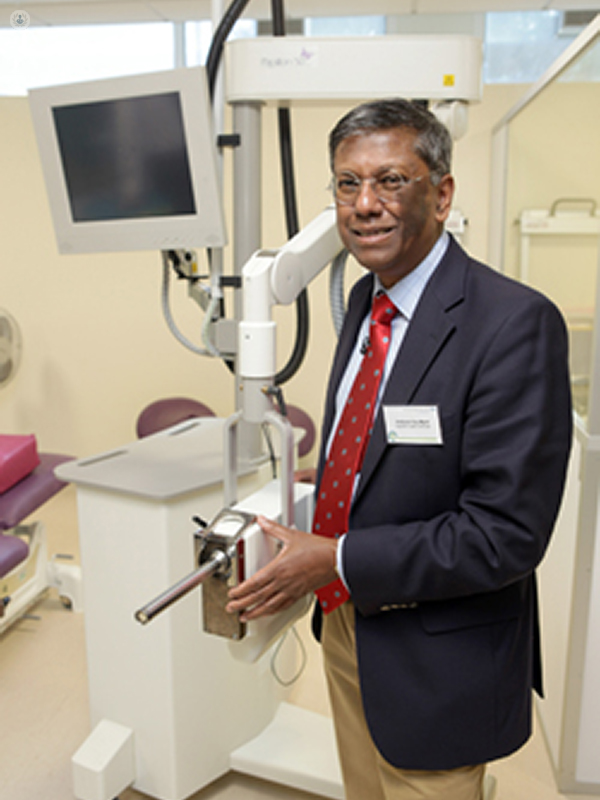

What is the Papillon treatment?
The Papillon treatment, also known as contact radiotherapy or brachytherapy, is an innovative type of radiotherapy primarily developed to treat rectal cancer. The introduction of this treatment means patients can avoid surgery if the cancer is caught in the early stages.
Years ago, patients who were diagnosed with early rectal cancer would have undergone major abdominal surgery and likely fitted with a permanent colostomy bag. Now, patients can receive a higher dose of radiation directly to the rectal tumour, without surgery and with less risk of damage to the surrounding tissue. Professor Papillon, from Lyon, pioneered this technique in the early 1940s – which is where the name for the treatment has come from.

Who receives this treatment?
Contact radiotherapy is recommended if the tumour is still small and hasn’t spread to surrounding lymph nodes. It’s also recommended for people who are not fit to undergo anaesthesia or major surgery, and for those who don’t want to have a temporary or permanent colostomy bag. Usually, it’s the treatment of choice for patients with early rectal cancer as it is less invasive and recovery time is much quicker.
What to expect during the treatment
The Papillon treatment involves a machine which directly targets the tumour in the back passage. General anaesthesia isn’t needed for this treatment and it only lasts a few minutes. You will likely be advised to maintain a low fibre diet three days before the treatment and given local anaesthetic gels and creams to relax the muscles around the entrance to the rectum.
The doctor will insert an applicator into the anus to identify and directly target the tumour. A small camera is inserted so the doctor can locate the exact location.
After the treatment, you should be able to go home. You will likely feel some soreness around the anus but will be given creams to ease the discomfort.
It is very common to return after two weeks to undergo more treatment. Each treatment kills the cancer calls, layer by layer, and will reduce the size of the tumour as the treatment progresses.
Are there any complications?
There can be both long-term and short-term side effects to this treatment.
Short-term
Long-term
Will the cancer return?
After the main treatment is finished, you will likely be asked to return to see the doctor for check-ups every three months for the next two years. In the following three years, your appointments will be extended to every three months, and then finally yearly appointments for the following five years. There is a 10% risk that the cancer will reoccur, sometimes in the same place. Therefore, these appointments are very important in order to keep the cancer under control. In the case that the cancer has returned, you may want to consider the standard surgery which would involve having a temporary or permanent colostomy bag afterwards.
